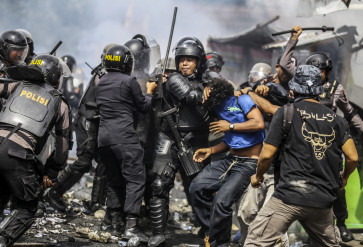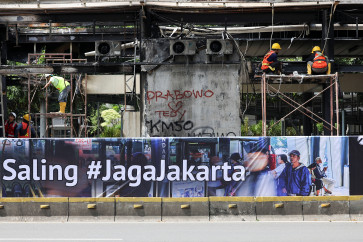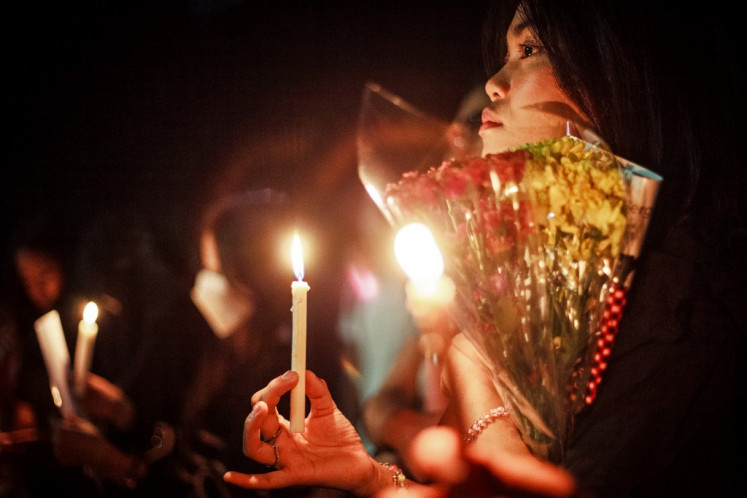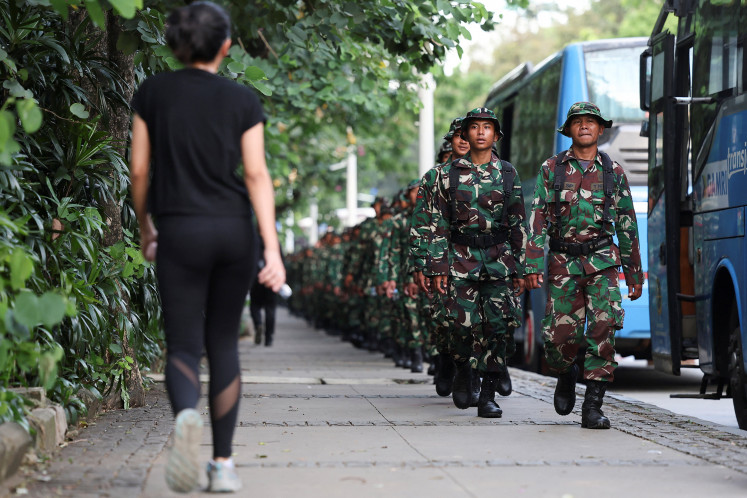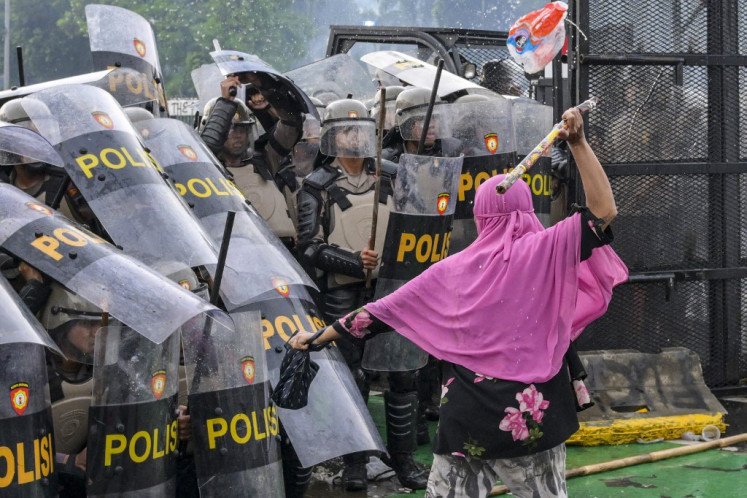Popular Reads
Top Results
Can't find what you're looking for?
View all search resultsPopular Reads
Top Results
Can't find what you're looking for?
View all search resultsPrivate sector key to tourism crisis management
The World Travel and Tourism Council (WTTC) has urged the Indonesian government to involve the private sector in managing what it called tourism “crises” to avoid a prolonged and larger impact
Change text size
Gift Premium Articles
to Anyone
T
he World Travel and Tourism Council (WTTC) has urged the Indonesian government to involve the private sector in managing what it called tourism “crises” to avoid a prolonged and larger impact.
The comment was made in the wake of recent security and safety concerns in Indonesia, including a string of terrorist attacks in various cities as well as the eruption of Mount Merapi in Central Java.
Although no airports have been closed, Mount Merapi’s alert status has been raised from “normal” to “caution”, the third-highest level, following multiple phreatic eruptions on Monday.
WTTC president and CEO Gloria Guevara said, based on the council’s research, when a country had a plan, was well prepared and involved the private sector, it tended to recover faster.
“The private sector should be involved, because, for instance, in a situation where the crisis is contained, or the situation is managed, the private sector can help with the messages. Or the private sector can help to manage the crisis,” she told The Jakarta Post on the sidelines of the recent International Transport Forum (ITF) 2018 Summit.
She warned that, according to WTTC research, it could take between two and 22 months for countries and tourist destinations to recover from a terrorist attack, depending on crisis management.
Barcelona and Paris, which have seen terrorist attacks in the past years, were cited by Guevara as the cities where tourism stakeholders had done a good job in managing the tourism crises that followed, with recovery taking just two months.
In northern Africa, in contrast, crisis management was less advanced, resulting in years-long crises.
The impact of political turmoil on tourism, meanwhile, is more severe than that of terrorism, as it can last between 11 and 45 months.
Environmental issues, including weather-related disasters and volcano eruptions, can impact a country’s tourism for four to 33 months.
As crises can happen at any destination, Guevara advised countries to have a plan prepared to manage a crisis and to engage the private sector for a speedy recovery.
“When you align with the private sector, I think, you minimize the impact,” she said.
However, she also applauded the Indonesian government’s preparation in establishing crises centers to manage various kinds of crises.
When Indonesia missed the target of attracting 15 million foreign tourists last year, welcoming a little more than 14 million, most blamed the eruption of Mount Agung.
Tourism Ministry development and marketing undersecretary I Gde Pitana said the government was already working with the private sector, such as during Mount Agung’s eruption last year.
The government worked with the Bali chapter of the Indonesian Tourism Industry Association (GIPI) during the eruption.
“Mount Merapi does not impact [tourism] that much, it has not hurt Borobudur [visits],” he said, referring to the famous temple and tourist magnet in Central Java.
He said the ministry also had a standard operating procedure to handle crises, including emergency, rehabilitation and restoration efforts.
Major tourism businesses in the country have stated that the recent terrorist attacks, including the bombings in Surabaya, East Java, had not resulted in a significant number of cancellations by foreign tourists.
At least 14 countries, including major Indonesian tourist markets, such as Australia, Singapore and Malaysia, issued travel advisories after the terrorist attacks.


